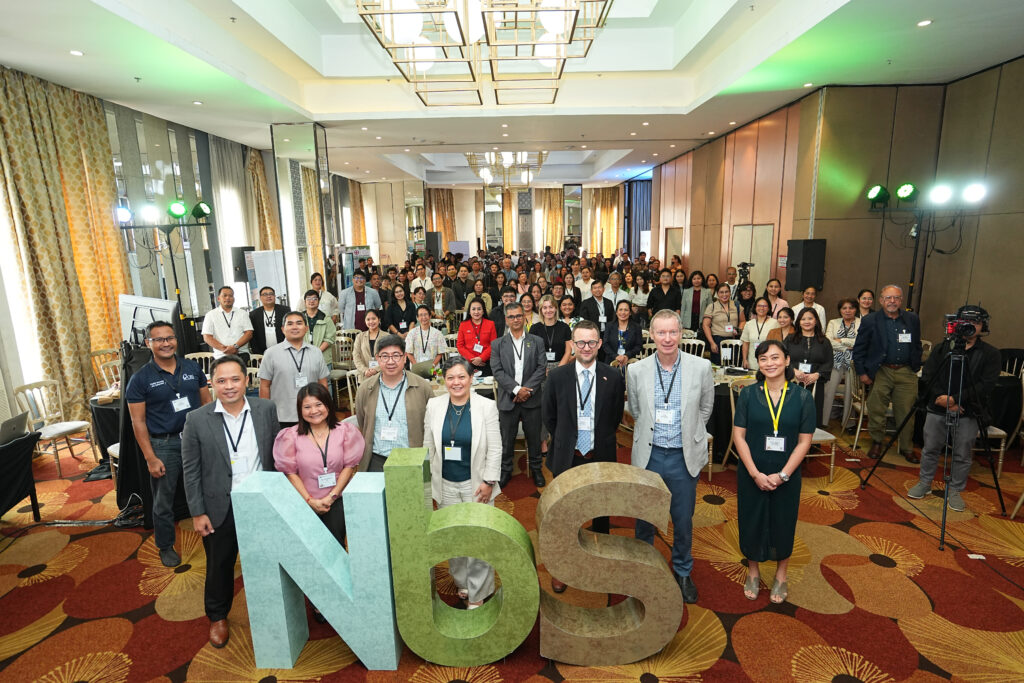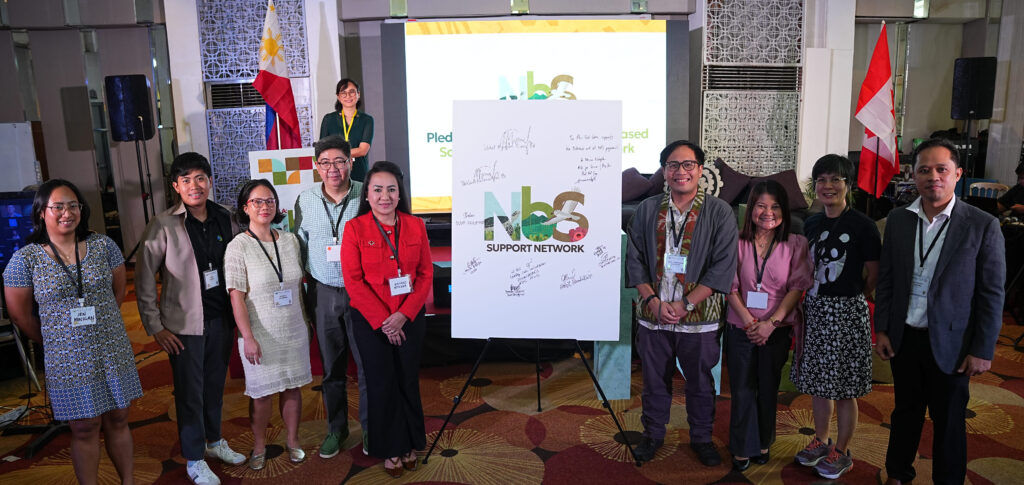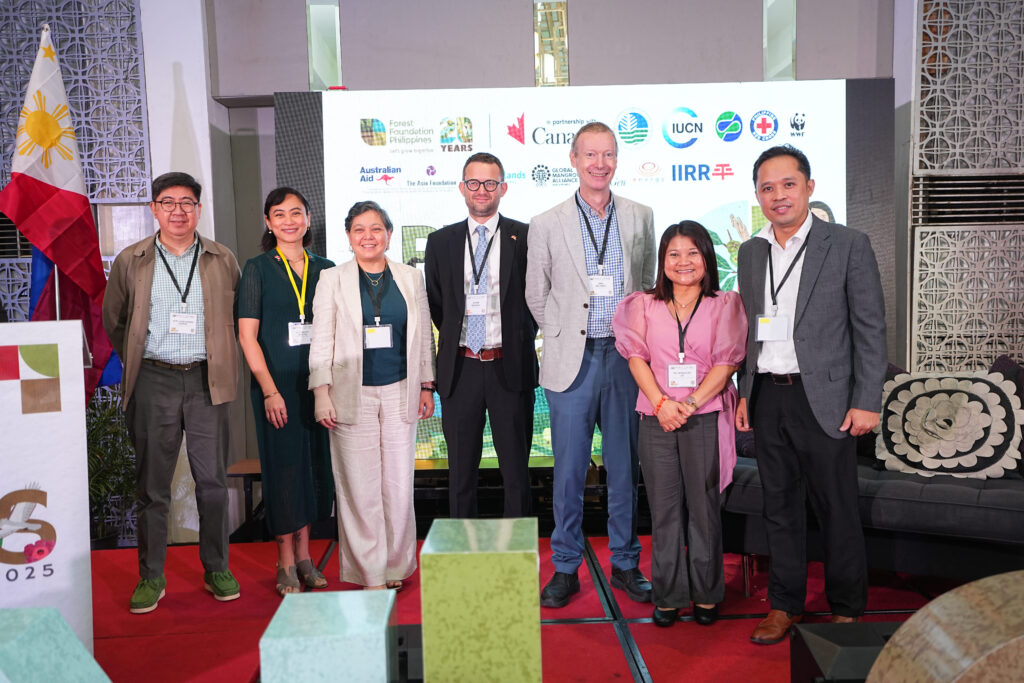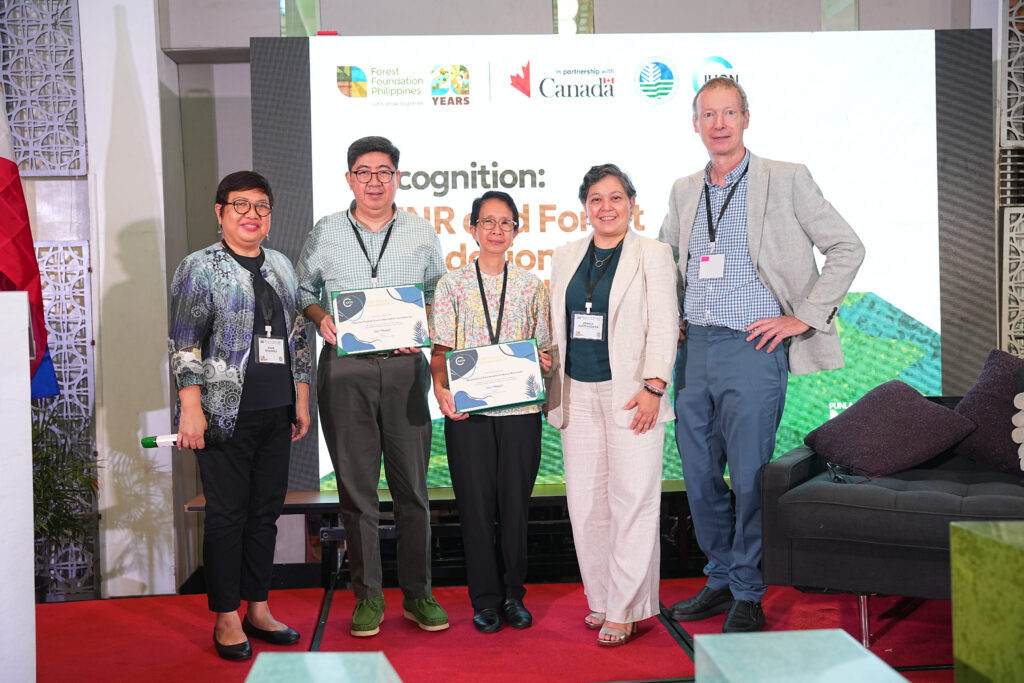
Manila, Philippines — The Department of Environment and Natural Resources (DENR), Forest Foundation Philippines (FFP), and the Government of Canada convened leaders and members of the government, civil society and development organizations, local communities, and the academe at the PUNLA Multistakeholder Forum on Nature-based Solutions on September 9–10 in Quezon City, to build a shared understanding of high-integrity Nature-based Solutions (NbS).
The Forum underscored NbS as vital for restoring ecosystems while addressing climate, biodiversity, and social challenges in the Philippines, highlighting the need for stronger national understanding and cross-sector coordination. Jake Brunner, Head of the Lower Mekong Subregion of the International Union for Conservation of Nature (IUCN), said that effective NbS must tackle societal challenges, work within ecosystems, and deliver measurable benefits for people and nature.
Integrating NbS in National Planning
To embed NbS in national policies, the DENR has convened a multistakeholder Nature-based Solutions Support Network to collectively define priorities and actions towards institutionalization of high-integrity NbS initiatives within the agency. With partners from the academe, civil society, local communities and development partners, beginning with the PUNLA: NbS Forum, the group aims to develop a shared understanding of NbS, enable actionable commitments and follow-up mechanisms to ensure sustained collaboration and implementation of NbS in the country.

The Philippines–Canada Partnership on Nature-based Solutions (NbS) for Climate Adaptation (PCP4NbS) was highlighted as a model of inclusive, community-led actions across six climate-vulnerable, biodiversity-rich areas that blend traditional knowledge, local leadership, and science. Edwina Garchitorena, Chair of the Board of Trustees of FFP, stressed that NbS bridges environmental and development goals, and that strong collaboration with partners is essential to institutionalizing them.

Mr. Simon Snoxell, Head of Cooperation at the Embassy of Canada to the Philippines echoes the same statement. “This multi-sectoral collaboration builds on local solutions, showing how scaling community-driven efforts can strengthen resilience for both people and ecosystems nationwide.”

The forum also marked a milestone in global-local alignment with the launch of the IUCN National Committee Philippines. Comprising IUCN members in the Philippines, the committee aims to localize global conservation frameworks and amplify the country’s voice in international environmental policy. “The committee connects Philippine efforts with global NbS and biodiversity targets while adapting international standards to local realities,” Edwina added.
Responding to converging climate and social risks
In the Philippines, 74% of the population faces climate-related threats, and the country holds the highest natural disaster risk globally, with a 2024 World Risk Index score of 46.91%. Forum discussions underscored how these risks are especially acute for Indigenous and rural communities, where degraded ecosystems weaken food systems, water access, and disaster resilience.
As Dr. Dixon Gevaña, Director of Forestry Development Center, University of the Philippines Los Baños said, NbS emerges as a critical pathway to restore natural defenses, and eventually strengthen social equity. “If we are to build lasting resilience, we must restore the ecosystems that sustain us while empowering the communities that depend on them,” he added.
Towards a sustainable, and climate-resilient nation
Panelists and community representatives reiterated integrating Indigenous knowledge, community practices, and science in NbS design, highlighting gender-responsive, youth-led, and community-driven approaches. They called for innovative financing, coherent governance, and strong partnerships to scale and sustain these initiatives.
“Ongoing collaboration across all sectors is essential to build a resilient and inclusive Philippines that can effectively respond to the nation’s most urgent climate and social challenges,” said Atty. Ray Thomas Kabigting, Assistant Director of the DENR Forest Management Bureau.
As environmental and social risks escalate, DENR, FFP, the Government of Canada and its partners remain committed to strengthening efforts to institutionalize and scale NbS to build lasting resilience for the country.
###
About Forest Foundation Philippines
Established in 2002, Forest Foundation Philippines is a non-profit organization founded under two bilateral agreements between the Philippines and the United States of America through the US Tropical Forest Agreements. This allows Forest Foundation Philippines to use the country’s debt for funding that is used for forest protection and conservation activities, through a ‘debt-for-nature’ agreement.
Forest Foundation Philippines has supported 472 projects between 2005 to 2016, under the First Tropical Forest Conservation Agreement (TFCA I). This effort collectively improved the management of roughly 1.5 million hectares (HA) of forest lands throughout the country, resulting in approximately 4,200 HA of forests that are supported by 40 community-conserved areas and over 60 community enterprises in the process.
The follow-up Second Tropical Conservation Agreement (TFAC II) led to the development of the 2017 – 2021 Results Framework that enabled the Foundation to support over 300 projects focused on the protection and sustainable management of the Philippines’ most critical landscapes. The effort resulted in the restoration of 1,243 HA of forests, and improvement management of over 1 million HA of forestlands while empowering 211 community-based.
############
———————–The article provided is authorized for use, and represents solely the author’s personal opinions. Please contact us in the event of any potential infringement.



